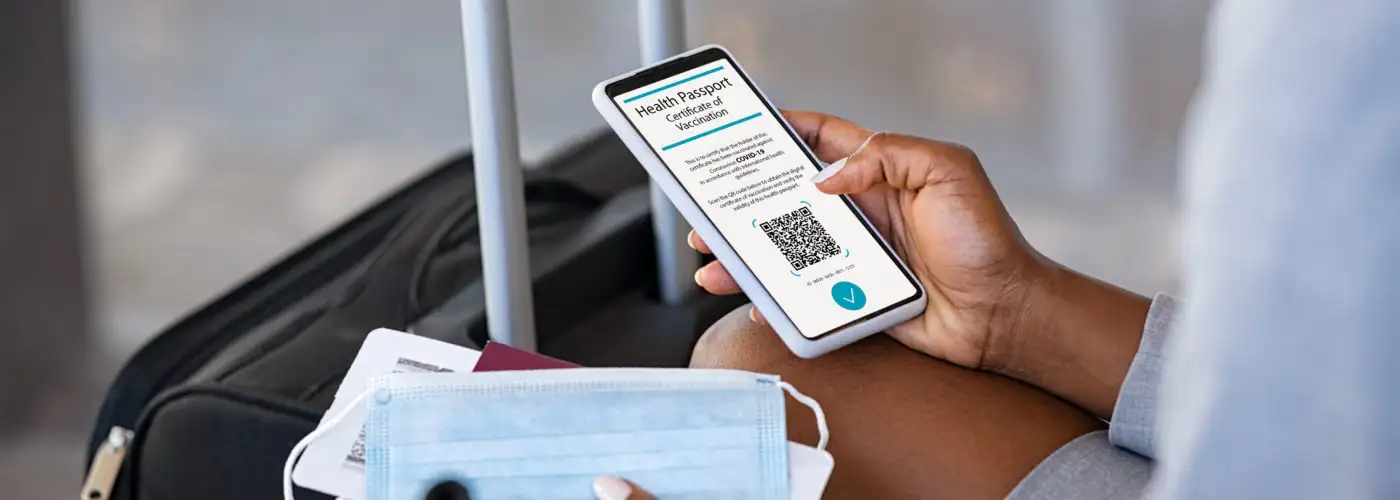A European trip isn’t as easy and carefree as it used to be, but that doesn’t mean you shouldn’t go. If you’re planning to travel to Europe this year, there are a few important things you need to know first about what to expect when you get there and what to do before you fly.
Open Countries Might Not Be Fully Open
Just because a country is accepting tourists, doesn’t mean it’s fully open for business. Depending on the region, you can expect a variety of COVID-19 rules to be in place that might interfere with your vacation. Be prepared for curfews, restaurant capacity regulations, closures of large venues, event cancellations, and other restrictions.
To find out the current situation in your destination, consult the embassy’s website, which lists pandemic-related rules. For example, on the U.S. embassy website for Portugal, you can view “current measures” for Portugal―which at the time of writing included limitations around restaurants, theaters, and alcohol sales.
Be Prepared to Mask

Mask use is still mandatory in much of Europe, even for fully vaccinated visitors. In some destinations, masks are still required even outdoors (when social distancing is not possible). Pack lots of masks and take your cue from what the locals are doing―if everyone else is wearing their mask while walking down the street, you should be as well.
Stay On Top of Entry and Exit Requirements
Entry requirements to Europe can change quickly, so make sure you have the latest information before you head to the airport. Most likely, you’ll have a few things you’ll have to take care of well in advance before you’re allowed to board a flight (like take a COVID-19 test or fill out a health form), so don’t expect to be able to accomplish those things at the airport.
The best place to find these procedures are on the website of the airline you’re flying, as well as the embassy website for the country you’re visiting.
Remember that as of right now, you’ll also need a COVID-19 test to return to the United States―check the U.S. State Department’s website for more details when planning your travel back.
Pack Your Patience
Wait times at customs and immigration in Europe were often long before the pandemic. Now add in the checking of COVID-19 tests and other travel forms, and you have a recipe for even longer lines. Don’t expect to just breeze in and out of the airport on a trip to Europe this year. Be prepared to wait longer than normal when you arrive―and factor that in if you’re planning on catching a connecting flight or meeting up with a tour group.
Have Your Proof of Vaccination or Negative Test Ready

The airport isn’t the only place where you’ll have to show your vaccination card (or negative COVID-19 test). In France, for example, you’ll have to show either a health pass (with proof of vaccination) or a negative PCR test taken within 48 hours to visit any major cultural attraction with a capacity of more than 50 people―like the Louvre or the Eiffel Tower.
In Denmark, you’ll need to show proof of vaccination or negative test in order to get a “corona pass”, a digital passport that’s required for indoor dining and many other activities.
Limit Country-Hopping and Layovers
Some European countries will require a COVID-19 test from passengers who are just connecting through the airport. Additionally, transiting through a higher-risk country could change your eligibility to enter certain European countries. To avoid testing headaches, keep things simple when you travel this year and try to get nonstop flights whenever possible.
Likewise, packing multiple countries into one European trip isn’t a great idea this year, as you’ll have to figure out the new rules (and probably get mid-trip COVID-19 tests) to move between destinations. This is the year for slow travel―pick one destination to spend all your time in to keep things simple.
Consider if Travel Insurance Makes Sense
With entry regulations changing rapidly, it might make sense to buy travel insurance even if it’s not something you usually invest in. This will give you peace of mind in case a country stops letting in tourists or if you test positive for COVID-19 before your trip. Make sure you look for a policy that specifically covers the pandemic (most standard policies exclude this) and that will cover your trip if you cancel for any reason.
At SquareMouth, you can search for travel insurance using a “Coronavirus Pandemic” filter, which will only show you policies that will cover coronavirus-related cancelations or interruptions.
You Might Also Like:
• US Issues Unusual Travel Warning for Popular Caribbean Country• 4 Common Travel Disasters and How to Prevent Them
• The Ultimate Toiletry Kit Packing List
• 6 Ways to Avoid Getting Sick After Flying
• 5 Hotel Nightmares That Could Happen to You
We hand-pick everything we recommend and select items through testing and reviews. Some products are sent to us free of charge with no incentive to offer a favorable review. We offer our unbiased opinions and do not accept compensation to review products. All items are in stock and prices are accurate at the time of publication. If you buy something through our links, we may earn a commission.
Related
Top Fares From
Today's Top Travel Deals
Brought to you by ShermansTravel
Shop and Save with Country Inns...
Patricia Magaña
 Hotel & Lodging Deals
Hotel & Lodging Deals
$229 -- Chicago: Discounted Rates and...
Francesca Miele
 Hotel & Lodging Deals
$229+
Hotel & Lodging Deals
$229+
$188 -- Honolulu: Save on Oceanview...
Abigail Lamay
 Hotel & Lodging Deals
$188+
Hotel & Lodging Deals
$188+




